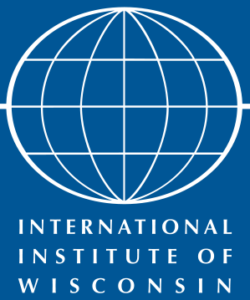History
The International Institute began as a branch of the Young Women’s Christian Association (YWCA) early in the 20th century, with a small staff of three, located in a five-room house near downtown Milwaukee. Today, the organization employs 17 people who assist newcomers to the country with immigration and social services, refugee resettlement, educational services, and interpretation and translation services.
During the 1920s, the organization expanded as the number of newcomers seeking services increased. Budget cuts and funding concerns led to the International Institute separating from the YWCA in 1936 and becoming incorporated under Wisconsin law as a separate social agency. The Institute’s purpose was to work with the foreign born in the field of naturalization, immigration, general orientation, and the promotion of better intercultural relations.
In 1943, the Holiday Folk Fair International was held for the first time to celebrate the cultural heritage of the people living in southeastern Wisconsin. The event traditionally showcases music, food, dance, and art to enhance racial, cultural, and ethnic cooperation.
Today, the International Institute of Wisconsin fulfills its primary purpose with events, such as the Holiday Folk Fair, education, arts, naturalization services, and partnerships with other organizations.
